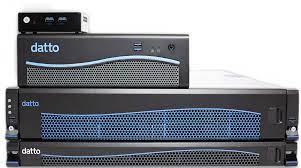Do you have data, or just collections of information?
I was reading this article thinking about one of my customer’s backups.
It’s true – they don’t have “data” at all.
Here’s the main take-away line:
Most obviously, data is not one thing, but innumerable different collections of information, each of them specific to a particular application, that can’t be used for anything else. For instance, Siemens has wind turbine telemetry and Transport for London has ticket swipes, and those aren’t interchangeable. You can’t use the turbine telemetry to plan a new bus route, and if you gave both sets of data to Google or Tencent, that wouldn’t help them build a better image recognition system.
(Because it’s behind a paywall, the link above might not work.)
Our customers have multiple collections of information too.
Schools have their MIS info (often SIMS) that is different to their finance info. Businesses have their key business application, their social medial and marketing info, their CRM, their finance info, etc. When I started in IT in the 90’s, all these systems stored files on the shared file store (remember needing to store files on the X: drive and your personal files on the P: drive?). Most times the info was from Word or Excel and was human readable, with even the apps storing their databases on the same shared drive.
Nowadays your info is locked up in the apps themselves.
If you use Asana for project management, the info is only in their servers and you can’t back it up. Some cloud providers like Microsoft allow you the ability to use cloud backup tools to back it up – not all do. Contact your account manager or one of our consultants to review your systems now.
When you take out a managed service from one of our companies, you can expect your data to be backed up. That information is backed up and can be restored if you have purchased the Datto full business continuity service. For anything else, you need to ensure that the backups are restore tested by your staff at least every 6 months.
When I was working at a global bank, as well as an international law firm, the truth is that backups there are just like in the small businesses – they do the action of backing up, but it’s too much hassle to do a full restore test that includes front line staff to check that the data really did restore correctly.
But are your data backups working properly?
In more than a few times over the last 25 years, at all levels of company size, I’ve seen people religiously run backup routines only to find out later that it was failing for months … and backing up nothing useful.
I saw it so often I coined the Matthewism, “If your backups aren’t restore tested, they aren’t being backed up.”
Shortly after I bought Electro-comm (the old name for Flywheel West Midlands), one of our engineers showed me the Datto product. Every night it runs a restore test in a virtual machine, takes a snapshot as proof and lists that in the next morning’s logs. With just one scan down a list, our engineers can review hundreds of servers in less than 2 minutes and know with confidence if the backup restored correctly or not. Immediately I knew my Matthewism above had a solution. As simple as that, we knew our customers had to move to this service.
Datto is approved by the Department for Education
It took almost 5 years for us to get this product over to our education customers, but it’s worth the wait. At nearly the same time, the Department for Education recommended schools move to a backup model that this product covers.
About Us
Flywheel IT Services has teams of highly qualified and experienced IT engineers and consultants around the UK.
For over 20 years we have partnered with businesses, schools and major construction companies to provide IT services and to guide and support their IT projects, tech strategies and day-to-day operations.



